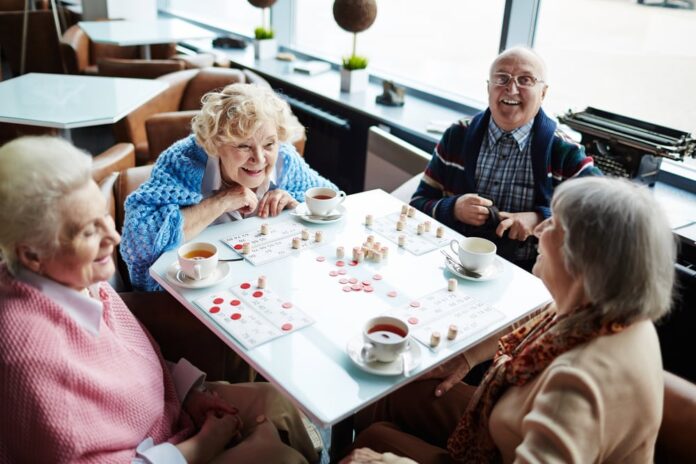When you get brought to aged care, it’s easy to spend your days in your private quarters and watch TV all day.
While it’s tempting to remain in bed until the afternoon, it’s hardly the ideal way of living, even for seniors.
In fact, sedentary folks are more prone to feeling lonely and developing mental health conditions than their more active counterparts.
Furthermore, sedentary individuals also face an increased risk of developing physical ailments since the body isn’t moving as often as it should.
The call to an active lifestyle is not restricted to the vibrant youth. Aged care individuals, too, can experience joy and fulfillment by taking part in positive lifestyle changes.
With all that said, here are the most common benefits of engaging in activities for the aged care demographic.
1- Improved Physical Health
Engaging in lifestyle activities is the prime gateway to improving your cardiovascular endurance and muscular strength.
You don’t have to stick with one routine activity, either. There are countless ways seniors can stay active—and reap the benefits of abiding by such a lifestyle.
For instance, you can consider running every other day around the block for at least 150 minutes a week. This can improve your cardiovascular fitness, body type, and heart health, which can be a tremendous way to stay in shape.
If running doesn’t interest you, you can try more static exercises like yoga. There are over 80 contemporary yogic poses and each of them works a different part of your body.
This, in turn, can lead to a number of benefits such as improved balance and coordination, increased weight reduction, and improved energy efficiency.
The two examples above account for merely a glimmer of all the sports that seniors can take part in.
Other excellent physical activities include dance, swimming, cycling, hiking, and golf.
As long as you stay active for at least 2 and a half hours a week, you should be receiving tangible results from all those activities.
2- Enhanced Mental Stimulation
Lifestyle activities aren’t just about improving your physicality; they also help you stay sharp-witted and mentally adept.
With more than 2% of the entire global population above 65 suffering from some form of neurodegenerative disease, it’s important to take precautionary actions to curb the acceleration of this disease.
One great way to do that is by participating in activities that utilize brain function. For instance, elderly individuals can solve crossword puzzles or sudoku challenges to pass the time while challenging their cognitive abilities.
They can even learn and participate in brand-new activities like playing board games or learning new instruments to enhance their overall cognitive abilities. This way, they can prevent their focus and attention from deteriorating due to lack of usage.
Besides the aforementioned activities, aged care patients can also join classes and read books to boost their brain function. No one’s ever too old to learn, so participating in these forms of intellectual stimulation can be a great way to keep one’s brain from getting rusty beyond repair.
3- Avenue for Socialisation and Emotional Support
Elderly people in aged care facilities can get extremely lonely, especially if they remain cooped up in their rooms isolated from everyone else.
This can lead to them suffering from adverse health outcomes, such as depression, anxiety, and low self-esteem.
To overcome a depressive and downward spiral, elderly folks can find refuge by participating in social lifestyle activities offered by their aged care facilities.
For instance, Banfields Aged Care hosts movie nights for their elderly guests and their families to participate in. This can be a good time for guests to socialize with their loved ones and make new friends. There is also a BBQ station and piano lounge for these people to relax in.
By participating in even just one type of activity, these patients can improve their mood immediately and gain the benefits of socializing with others.
This includes developing new friendships, fostering a sense of community with others, and having emotional support in one way or another.
In turn, this can positively influence the mental health of the elderly individual, dramatically increasing their satisfaction and quality of life.
4- Increases Independence
It’s rare for elderly individuals to willingly relinquish their liberty to move around and do what they want to do.
But in some common cases, they can subconsciously be their own limiting factor by convincing themselves that they’re no longer able to do things freely due to their age and frailty.
This is where exploring lifestyle activities can cause a massive shift in mindset. When elderly individuals feel like they can still participate in physical activities and mental challenges, they’ll be confident in their abilities and feel satisfied with themselves and their capabilities.
In turn, this can maintain a sense of autonomy and self-sufficiency within themselves that can keep them happy. It’ll also help them rely less on others for their basic needs, which can help everyone involved.
5- Relieves Stress
Stress can affect people of all ages, and seniors are no exception. That said, participating in the right lifestyle activities can mitigate these feelings of stress and make them feel more relaxed.
Activities such as meditation, tai chi, and gentle stretching exercises are great measures to relieve oneself from stress. These techniques are calming and bring the focus back to one’s mind, which can promote a sense of inner peace and clarity.
Elderly individuals can also find stress relief from taking part in their hobbies, like painting, gardening, and singing or dancing. These creative self-care activities provide an outlet to allow these patients to express themselves creatively, which can be a great way to break away from the dryness of everyday life.
Aside from relieving stress, seniors who participate in their favorite lifestyle activities can also potentially reap the benefits of their specific activity.
For instance, seniors who like painting can feel a boost in mood and an increase in confidence from their work. On the other hand, seniors who like to take long walks around the block can gain better physical fitness due to their activity.
All these benefits, in turn, can make the seniors feel less stressed and significantly happier.
Read Also
- Exploring the Benefits of Infusion Therapy in OKC: The Ultimate GuideUnderstanding Infusion Therapy: A Deep Dive into Its Purpose and Process What exactly is Infusion Therapy? Infusion therapy is an advanced medical treatment that delivers medication and nutrients directly into the bloodstream through a vein, typically via an IV (intravenous) line. This method is particularly beneficial for patients who require a concentrated dose of medication,… Read more: Exploring the Benefits of Infusion Therapy in OKC: The Ultimate Guide
- Ketamine-Assisted Therapies: Impacts on Employee WellbeingWorkplace stress is common today. Many employees feel tired, anxious, or burned out. Regular therapy can help, but some people need more support. Ketamine-assisted therapy is showing good results for mental health. A ketamine-assisted therapist guides each session safely. This therapy can improve mood, focus, and energy. Learning more about it can help teams stay… Read more: Ketamine-Assisted Therapies: Impacts on Employee Wellbeing
- The Future of Men’s Health: Why Telehealth Is Here to StayTelehealth isn’t just a pandemic trend that faded into the background. For Australian men, it has become one of the most practical, time-saving, and stress-free ways to manage everyday health — and it’s shaping the future of how we access care. Platforms like DOCTO, an Australian online doctor and specialist telehealth service, are leading the… Read more: The Future of Men’s Health: Why Telehealth Is Here to Stay
- How to Build a Simple, Clean Skincare Routine ?You don’t need a complicated skincare routine. It doesn’t have to be something that requires twenty different products and confusing steps. Your routine works well with just a few high-quality clean ingredients. The beauty industry keeps pushing more products, but your skin actually needs less. You only need a simple approach to get better results… Read more: How to Build a Simple, Clean Skincare Routine ?
- How Preventive Dental Care Supports Overall HealthHave you ever wondered how a simple dental checkup could impact your entire body? Oral health is more than just a bright smile. Studies show that poor dental habits can contribute to serious health problems. Gum disease and tooth decay are linked to heart disease, diabetes, and infections. Yet, many people overlook preventive dental care.… Read more: How Preventive Dental Care Supports Overall Health
- Seeing Clearly in a High-Tech World: A Deep Dive into Advanced Vision Care ServicesProtecting your eyesight isn’t optional—it’s essential. Modern eye care has evolved far beyond basic exams, offering advanced diagnostics, personalized treatments, and surgical innovations that keep vision sharp for life. A leading example is Intermountain Eye Center, home to specialists like Dr Fishburn Boise, where patients receive comprehensive, high-level vision care designed to preserve long-term eye… Read more: Seeing Clearly in a High-Tech World: A Deep Dive into Advanced Vision Care Services







